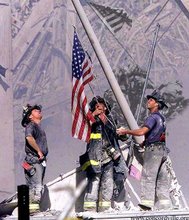Because the caucuses, held in the early evening, do not allow absentee voting, they tend to leave out nearly entire categories of voters: the infirm, soldiers on active duty, restaurant employees on the dinner shift, medical personnel who cannot leave their patients, parents who do not have babysitting and many others who work in retail, at gasoline stations and in other jobs that require evening duty.Not campaigning in Iowa or having any prior experience there, perhaps I should not comment on the above situation. However, isn't the idea that the Republican Party Chairman in Iowa won't caucus because of business that takes him away from his home county, oh say, just a tad disturbing? How long has he, of all people, had to schedule and plan and worry about this?
As in years past, voters must present themselves in person, at a specific hour, and stay for as long as two. And if this caucus is anything like prior ones, only a tiny percentage of Iowans will participate. In 2000, the last year in which both parties held caucuses, 59,000 Democrats and 87,000 Republicans voted, in a state with 2.9 million people. In 2004, 124,000 people turned out for the Democratic caucuses.
The rules are so demanding that even Ray Hoffman, the chairman of the Iowa State Republican Party and a resident of Sioux City, cannot caucus Thursday night, because he has to be in Des Moines on party business.
Iowans begin the presidential nomination process, making choices among the candidates that can heavily influence the way the race unfolds. Now some people are starting to ask why the first, crucial step in the presidential nominating process is also one that discourages so many people from participating.
Wednesday, January 2, 2008
Up in Arms over Caucus
Subscribe to:
Post Comments (Atom)





No comments:
Post a Comment